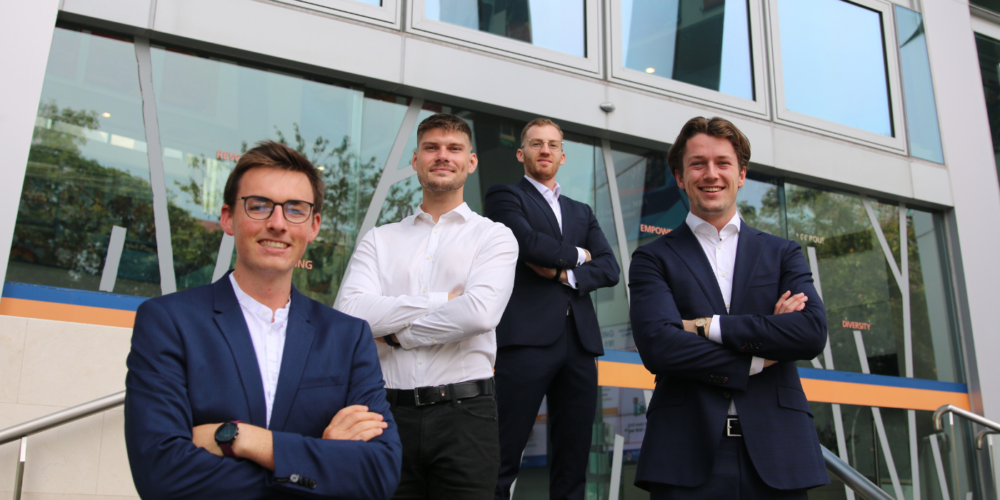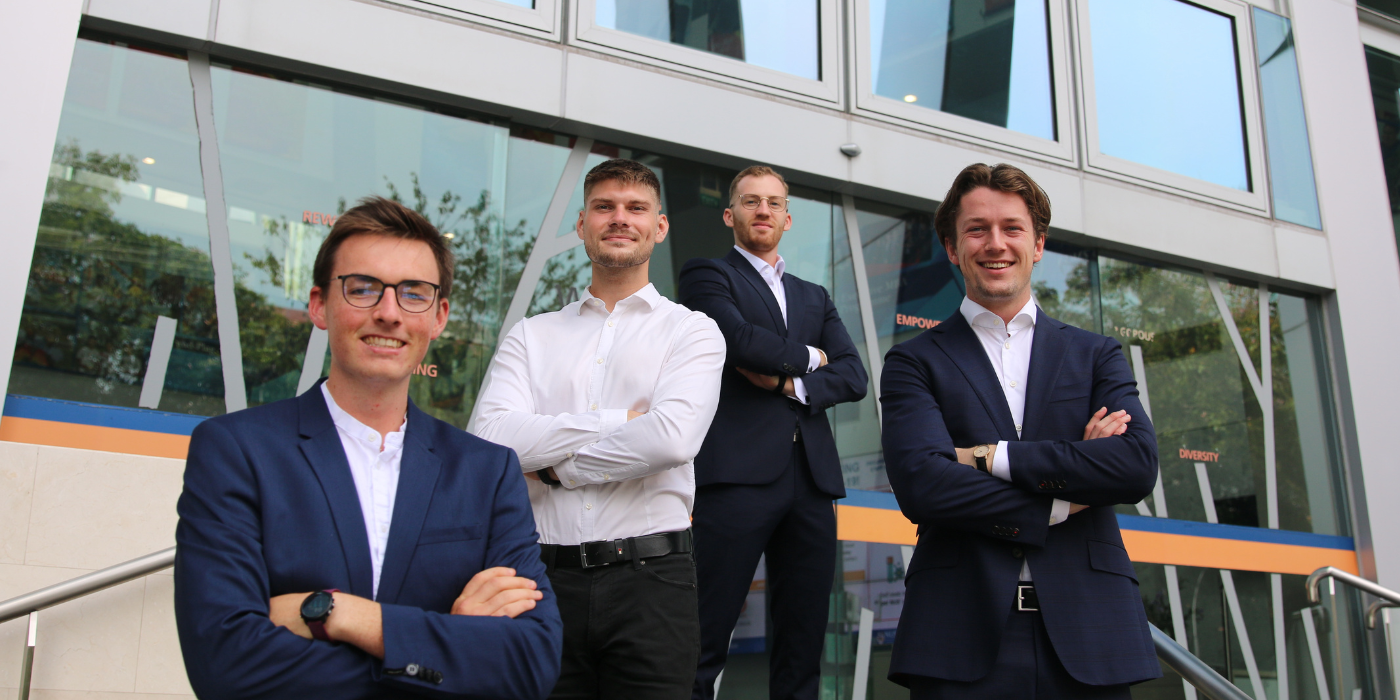An NUS Business School team consisting of Casper van den Berg, Matej Lang, Nicolas Felder and Jean Jacques Perichon, won this year’s Yale Africa Startup Review. It is the first time an NUS MSc student team has won the competition.
Casper, Nicolas and Jean are NUS CEMS MiM students, while Matej is a CEMS exchange student from VSE Prague. The quartet joined some 100 selected students from institutes across the globe to partner with 30 start-ups from Africa to solve business challenges over six weeks.

From left: Nicolas, Matej, Jean and Casper
The team tasked to conduct market research for South African fintech Fractal Labs said the NUS MSc modules gave them the knowledge and skills to make their recommendations.
BIZBeat spoke with the four to find out more about their competition experience.
Q: What made the team participate in the competition?
We always hear that Africa will be the next “big thing”, but there are not many opportunities in which you could come in direct contact with this market. That was why we saw this opportunity as a great way to get familiar with this geography with its amazing history and business environment.
Q: Please tell us more about the fintech firm Fractal Labs.
Fractal Labs is a fintech founded in 2019 that develops different types of software for credit risk analysis. Our task was to analyse the competition for Fractal Labs and develop recommendations for them via market research.
We addressed three emerging and frontier markets, Africa, Southeast Asia and South America, for each product. The market research showed the key drivers in these markets and benchmarked Fractal Labs with the key players in these markets.
Our recommendations were divided into three parts. The first two focused on improving visibility in these markets and how the product portfolio should be focused. The third and final recommendation showed the implementation steps that ranged from adapting the payment model of benchmarked companies to proposed shifts in partnership strategies to attract new customers.
Q: How did the team apply their NUS MSc skills in this competition?
There were many useful modules where we applied our knowledge. For instance, Professor Ishtiaq Mahmood’s strategy class positioned us to navigate emerging markets. Our Fintech Management module showed us the key fundamentals of fintech firms. Finally, Assistant Professor Ng Weiyi’s Entrepreneurial Management module helped us analyse the core of a successful company – Opportunity, Customer Value Proposition, Go-to-Market Strategy, Technical and Operations Management, and Profit Formula. We then proposed identifying a go-to-market approach for Fractal Labs.
Q: What are some of the challenges you faced during the competition?
When we were trying to collect data for revenue models, there was not much information available. Our solution was to approach industry figures on LinkedIn and ask the companies’ chatbots to gain insights for our market research.
Q: What did you get out of this experience?
It was a very enriching experience in many aspects. Working for a start-up sheds light on the diverse issues small and new firms face compared to the larger and more established companies. There was exposure to the African market and the chance to apply the tools and knowledge gathered during our time at NUS. The CEMS programme’s international experience trained us to be strong communicators in the team. Each member is from four different countries — Belgium, the Czech Republic, Germany and Netherlands.




